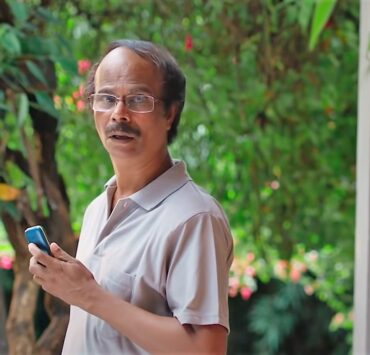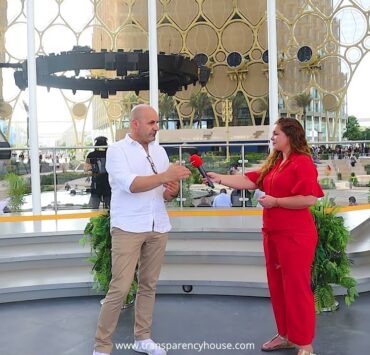THE EVER ELUSIVE EQUALITY

Jazeela Sherif is an engineer turned CFO, a painter and…
How big can be the chasm between equality and inequality? After millions of generations and civilizations down the evolutionary path, even people of advanced democracies have not done away with differentiating humans by pedigree, let alone ensuring equitable distribution of social justice and resources to all. Seven decades of democracy rooted in a comprehensive constitution crafted by a Dalit that upholds equal status to every citizen has made little difference to the casteist outlook deeply entrenched in some segments of the Indian society – its ramifications being felt across the social, political, and economic spectrums.
Jai Bhim, the Tamil movie written and directed by T.J. Gnanavel has a storyline based on a real incident of the 1990s. One can watch it only with bated breath, visualizing the colossal brutality and injustice meted out to a tribal family in real life. Jai Bhim underlines what Visaranai (Tamil) and Oru Kuprasidha Payyan (Malayalam) had fired into our conscience. All three stories are picked up from real incidents of custodial brutality of police committed on marginalized people.
We saw yet another unparalleled account of casteist prejudices soaring above paternal passion in committing filicide, in Paava Kadhaigal series (Netflix). Caste may not be the sole culprit in Jai Bhim, but it is certainly a deterrent in identifying the real offenders.
It would be unjust to assume that Jai Bhim gets the attention that many other films with similar themes couldn’t, due to the presence of Suriya the matinee idol of Tamil cinema. We are habituated to watching injustice being meted out to the poor, downtrodden, and the underprivileged people in many movies, and in real life too. In here, we are amazed to see how powerful the judiciary is when it is in the right hands, and when we deliberately care for providing access to it to those who are ill-informed or trapped in administrative quagmire. Very few such people are lucky to get the backing and patronage of lawyers at the right time and in the right measure. The opposite is true when an influential person is at fault. The system may even falsely implicate an innocent and torture him to confess, facilitating the impunity of the real culprits. Sadly enough, they do this with the least remorse since the victim’s caste or backwardness is often assumed to justify such possibilities.
The real hero of Jai Bhim is the law that does not discriminate, which is echoed in many instances in the story with frequent allusion to Dr. Ambedkar and the constitution. Except in a few introductory scenes, we mostly see Advocate Chandru, the selfless social activist, and not Suriya, the superstar. Advocate Chandru of real life is a crusader of fight against caste discrimination. Portrayal of brazen caste discrimination is honest to the core when the police segregate men arrested on false charges to close pending cases, by calling out their caste in the opening scene. It may border on artificiality as it seems, but the reality that unfolds is unbelievably gruesome and surpasses any notion of probability.
Irulas traditionally belong to snake catchers’ tribe and live in the fringes of the villages close to forests. They do not own land, have no voter ID or any credentials of citizenry, which is no bizarre a fact as far as village authorities are concerned.

They are usually kept at bay by the upper castes unless their services are summoned in emergency situations. Rajakkannu (Manikandan) is an upright, ambitious family man and a hardworking Irula, ably supported by his wife Senganni (Lijomol Jose) and his kin in their vocation. They are illiterate, homeless and denied suffrage by the village chief, yet they keep a cheerful optimism about a better future. A snake catching job at a rich man’s house lands him in a tragedy following a theft from the same house later on. His finger prints lead to police hunting him down for custodial questioning. While Rajakkannu was away from the village, Senganni, his brothers and aunt are taken away by the police. All of them get tortured and abused at the police station.
A heavily pregnant Shenganni is released once they caught hold of Rajakkannu. What goes on next is unimaginable third-degree custodial torture and harassment to make him confess to a crime he has not committed. All what the police wanted him is to confess and save himself and his brothers from the unrelenting inflicting of pain, the intensity and severity of which got ramped up every time, beyond the threshold of human endurance by any standards. Rajakkannu is unshaken and determined even as his body gets trampled under the boots, rather, under the heavy handedness of a corrupt and inefficient system that places quick results above true justice. The superiors’ frequent threats, originating from the single focal point of elections and political bigotry cascade down, compelling the entire rank and file down the line of control of power to fall in line with the concocted stories, scapegoating innocent people far outside the reach of legal system in practice.
There seems to be no exaggeration in the gut-wrenching interrogation scenes, as criticized by some viewers as torture porn, though it can be deeply disturbing. Rajakkannu asks his co-accused to endure the pain for some more time rather than getting branded as thieves for the rest of their lives. Gandhian values have not lost its relevance, for the glimmer of hope comes from this poorest man from the lowermost rung of the society. We can only hang our heads in shame, if we still choose to embrace the modern-day practicality.
Police reports missing of the three from the police station the next day. His wife can only wail and run to the ‘who is who’ of the village, all belonging to the upper caste, asking for help. She is turned away by all until she knocks at the door of their teacher, a literacy campaign worker among the tribe. She takes her to Advocate Chandru, a down to earth human and social activist who offers selfless services to the numerous voiceless victims of the iron handedness of the system. Some semblance of super heroic saviorism might have crept in at this juncture with the entry of the super star, but soon the movie gets down to the thick of a thrilling journey of brilliant investigation into the disappearance of Rajakkannu. Chandru puts in all-out effort to dig out the truth.
Senganni’s narration of what happened makes him simmering with anger. Gripped by the horror of violence Rajakkannu has been put through, he makes a quick move to file a habeas corpus petition which is accepted by the court. Nothing stops him from going to the deepest possible cracks in the fabricated story of the cops to unravel its falsehood. An independent investigation is ordered by the court. This would not have been possible without the support of the panel of judges who intervenes with full conviction of the situation. The court room scenes are thoroughly engaging, portrayed with honesty, showing the undying spirit of justice, which is unfortunately inaccessible to so many people.

The height of treachery in twisting facts to suit the officials would leave you aghast. Vetri Maaran’s Visaranai told us the gripping story of gullible migrants entangled in a deadly trap crafted by the police that indulged in playing the system to their advantage.
We are fed with excessive media interpretations of fictionalized versions of such narratives in such cases that we seem to have our own judgement of the truth. How far would our caste prejudices or even preconceived notions, based on religious or other biases, influence defining the binary of the bad guy and the good guy? More often than not stereotypical images of binaries are thrust on us through popular movies and TV serials. Auditing of the source is the least we do these days. The most ferocious carnivore on earth chasing a prey does it so, and does exactly what is required enough to kill for food, and only when hunger strikes, but nothing more, or less. Humans, with the so-called intellectual capacity, torture races for generations through violent means – recently through digital means too, so as to merely petrify or endanger others’ very existence itself.
Senganni refuses to accept the hundred thousand rupees offer of bribe to withdraw the case. The reason she gives for the outright rejection would strike right into your heart. Price tagging the dignity you deny the underprivileged hits right back at you. Your heart goes out for Senganni, the lone fighter, especially when you know that such a person existed in flesh and blood, like her husband who refused to yield to the deadly blows on his chest. Lijomol Jose has pulled out a stellar performance as a helpless but resilient young mother. Manikandan just lives as Rajakkannu in a short but impactful role.
A dominant super hero appearing as the guardian angel has not clouded the portrayal of the resolute lead pair. Director Gnanavel has substantially downsized the overbearing impact of Suriya in the court room scenes. With a restrained performance and the corners of his eyes brimming with anger, Suriya has given a commendable performance. His presence has certainly elevated the movie to a mass entertainer (of a different genre) if we can call it so. If that helps in getting the message across, certainly some of us would indulge in conscience checking, and would put to test the correctness of our equality concepts and the boastful credentials of possessing mature democratic values.
Jai Bhim is not yet another sympathy grabbing tale of the downtrodden. It is a bold statement on how we have collectively wronged the poor of the country, ignored them in our stride to progress and shrunken their lives to zilch. Jai Bhim doesn’t hide what it reckons as the guiding force behind the fight for justice and the source of inspiration for sticking to the values for nothing but equality in return. Statue of Karl Marx, and pictures of Ambedkar and Periyar are a constant presence in Chandru’s premises. He even asks once why Ambedkar’s picture is missing in a public meeting.
In the concluding scene, Senganni’s daughter wants to try Chandru’s habitual cross legged sitting posture while reading the newspaper. With her newly acquired literacy skills, she looks for Chandru’s positive nod, which he happily gives. While the level playing ground is already set by the constitution and the legal system, some among us still need the reassurances from the society, some fostering, and handholding to step into that big world of fair freedom as one among the millions of the owners of this otherwise beautiful earth.
(NOTE: All images are sourced from the official trailer of Jai Bhim and are hereby acknowledged. Pictures help the readers to connect easily with the story hint, and are used with the good intention of promoting the work. Objections, if any, from the owners of the productions, shall be communicated through the contact form, upon which the pictures used will be removed)
What's Your Reaction?
Jazeela Sherif is an engineer turned CFO, a painter and a trained singer. Besides engineering, she holds an M.B.A, PhD, and an MSc in Financial Engineering.



